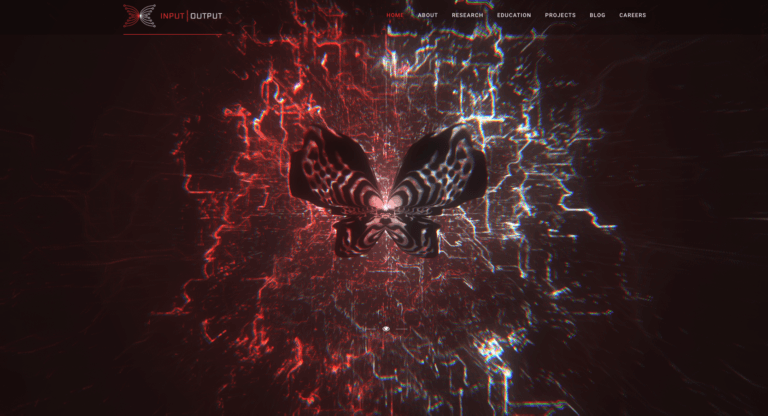On Friday (12 October 2018), Charles Hoskinson, the creator of Cardano ADA) and the CEO of IOHK, and Ken Kodama, CEO of Emurgo, published a joint statement (on the IOHK blog) with the title “An Open Letter to the Cardano Community from IOHK and Emurgo.” The purpose of this statement was to explain why they were disappointed by the performance of the Cardano Foundation, to ask the Cardano Foundation council to subject itself to a full audit, to ask for the resignation of the chairman of the Cardano Foundation, and to announce that IOHK and Emurgo were going to take over the main responsibilities of the Cardano Foundation until at least 2020.
This open letter to the Cardano community starts by explaining that when work on Cardano first started in 2015, “instead of launching an all-powerful foundation that would raise funds, manage development, encourage adoption and address the concerns of the community,” it was decided to “diligently split the governance of Cardano into three legal entities: IOHK, Emurgo and the Cardano Foundation.” The hope was that such a separation of powers would “ensure that the failure of one legal entity, if any, could not jeopardise or destroy the Cardano project.”
The responsibilities would be split as follows:
- IOHK: Main responsibility was and is “developing the core collection of protocols that compose Cardano, from academic inception to applying formal methods to verify correct implementation.” However, IOHK also maintains the Cardano Roadmap website, produces many videos on theIOHK YouTube channel, publishes a weekly technical report, and has “dedicated project managers who produce videos on progress, hold special events and have AMA (Ask Me Anything) sessions.”
- Emurgo: Responsible for “building partnerships with developers and instigating projects for the Cardano protocol around the world.” It has been “collaborating with IOHK on products such as the Yoroi wallet, improving the developer experience for smart contracts and DApps, and holding discussions on high-value markets to drive adoption, as well as other efforts within its mandate.”
Cardano Foundation: Created to “promote the Cardano protocol, to grow and inform our community and address the needs of the community.”
Next, Hoskinson and Kodama’s joint statement says that for the past two years “there has been great frustration in the Cardano community and ecosystem,” which has been caused by “a lack of activity and progress on the assigned responsibilities of the Cardano Foundation and its council.” It then goes on to list the main reasons why IOHK and Emburgo are dissatisfied with the performance of the Cardano Foundation:
- “A lack of strategic vision from the council.”
- “The absence of a clear public plan for how the Foundation will spend its funds to benefit the community.”
- “The lack of transparency in the Foundation’s operations (for example publication of its board minutes and director remuneration).”
- Material misrepresentations and wrongful statements by the Foundation’s council including a claim that it owned the trademark in Cardano.” (More details: “The council has even tried to assume the power to decide who speaks for the protocol, what should be deployed on the protocol and how the press should represent relationships between Emurgo, IOHK, the Foundation and third party projects.”)
- “Lack of financial transparency.”
- “The lack of a complete and diverse Foundation council.”
- “Lack of any concept of how the millions of dollars committed to the Foundation will benefit the Cardano community.”
- “Absence/unawareness of any meaningful internal governance system at the Cardano Foundation.”
Since the Cardano Foundation is an independent legal entity governed by its council, there is no way to force the chairman of the Foundation, Michael Parsons, to resign. So all that IOHK and Emurgo can do is hope that “reason will persuade Mr Parsons to voluntarily step down” in order to “allow for regulatory oversight and avoid the Foundation continuing to be an ineffective entity.”
The IOHK and Emurgo then make the following offer: Since the Cardano Foundation and its council “have not been able to execute their purpose in promoting and supporting the Cardano ecosystem,” they agree to commit to the following actions until at least 2020:
- IOHK & Emurgo: “hiring dedicated community managers for the Cardano ecosystem and assign them to growing and informing our community through meetup groups, events, educational efforts and other metrics that can be tracked.”
- IOHK: willingness to hire “Cardano Foundation personnel directly engaged in community management should they desire to leave the Foundation.”
- IOHK & Emurgo: starting “efforts in Japan to improve exchange access and community understanding of Cardano.”
- IOHK & Emurgo: scaling up “educational and marketing efforts to include more content about the Cardano protocols, developer resources and USPs of our ecosystem.”
- IOHK: hiring “an open source community manager to draft the Cardano improvement proposal process and begin its rollout.”
- IOHK: agreeing to expand “research scope to include the areas originally forseen for the Cardano Foundation.”
- IOHK: starting “a research agenda to design a decentralized Foundation built as a DAO to be deployed on the Cardano computation layer. We will announce a dedicated research center at a later date.”
To give IOHK’s grievances with the Cardano Foundation a more personal touch, Charles Hoskinson created a video on his YouTube channel, which provides more details, and in particular, accuses the chairman of the Foundation of nepotism, and blasts the Foundation for not executing “on many of its core responsibilities and duties”:
“To lead the Cardano Foundation, Michael Parsons was selected as chairman… In a sense, his responsibility was to construct a board, hire an executive director, and then serve, mostly, as a kind of community ambassador, not in an operational role… the board has now diminished to two people, Mr. Parsons and a legally required Swiss resident… Pascal Schmid… Unfortunately, we haven't seen any diversity in that board. We have seen evidence of nepotism, in that Bruce [Milligan], his son-in-law, is doing work there, his wife is doing work, Julie Milligan, and we haven't seen the Foundation execute on many of its core responsibilities and duties.”
Featured Image Courtesy of IOHK








